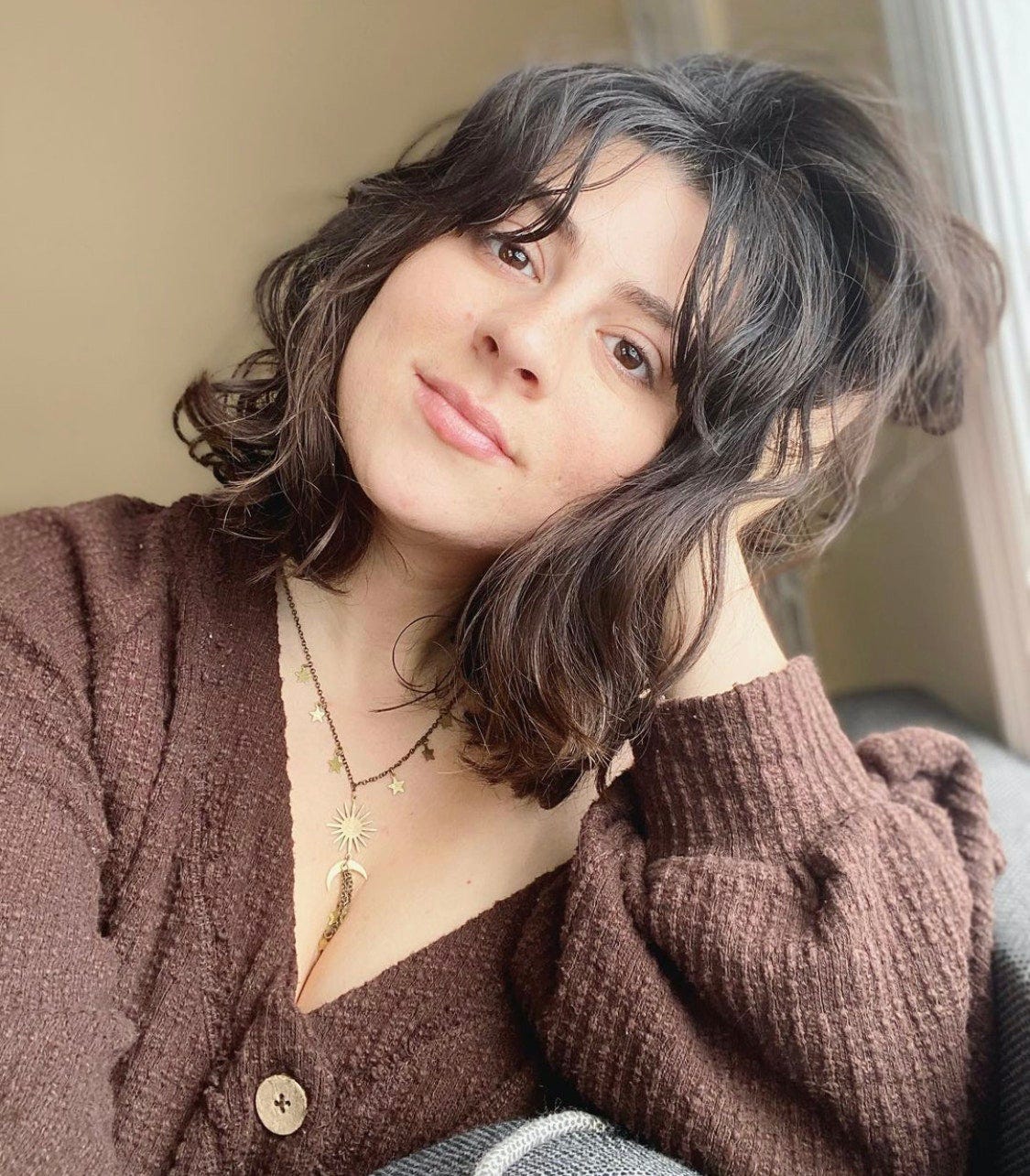On Aging: An Interview With Oldster
Oldster Magazine is a balm for the beauty-brainwashed soul.
I recently had the pleasure of being interviewed for Oldster Magazine, a newsletter from writer Sari Botton that explores “age and aging among every gender at every stage of life.” If you aren’t subscribed to Oldster yet… whew. Do it. I’m telling you. Especially if the skincare industry’s constant glorification of youth gives you aging anxiety. It’s not a beauty-focused newsletter, but still, every post (see: This Is 92, This Is 56, This Is 77) is a balm for the beauty-brainwashed soul — a reminder that aging is living, goddammit!!
An excerpt from my feature is below, and you can read the full thing here.
How old are you?
32
Do you feel old for your age? Young for your age? Just right? Are you in step with your peers?
Spiritually, I feel old for my age. Intellectually, I feel young for my age. I don’t know if it’s imposter syndrome or anxiety or intuition, but I always feel like I don’t know as much and haven’t experienced as much as my peers.
What has aging given you? Taken away from you?
Aging has given me… relief? I’ve realized that “aging” and “old” aren’t future events to fear, they’re just… this, for longer. Aging is here, it’s now, it’s happening, and so I can sort of calm down about the whole thing. Aging has taken away the notion that I will ever truly know anything.
How has getting older affected your sense of yourself, or your identity?
The older I get, the less attached I am to having an “identity.” Maybe that’s a bad thing? I don’t know! People always talk about not recognizing themselves as they get older as if it is, indeed, a bad thing—in the beauty community especially—but I’m starting to think that’s the whole point. Aren’t we supposed to grow and evolve and expand and shape-shift and be moved and changed by life? If I recognize myself 10, 20, 30 years from now, I’m doing something wrong. (Although the deeper I get into this answer, the more I wonder if I'm perhaps in the middle of an identity crisis.)
What aging-related adjustments have you recently made, style-wise, beauty-wise, health-wise?
The biggest change has been my beauty routine. I stopped using skincare, I stopped dyeing my hair (I have naturally brown hair, and I used to go back and forth between blue-black and platinum blonde), I barely wear makeup. The beauty industry loves to tell you that these things are tools of “empowerment” and “self-expression”—but I had an aha moment this year where I realized that performing beauty asks you to sacrifice your actual sources of power (time, effort, headspace, money) to get the surface-level look of “empowerment.” And for me, the “self-expression” of makeup and hair dye was more like self-rejection. I was actively covering my skin with foundation, manipulating my bone structure with contour and highlight, faking longer lashes and wider eyes and all of it—there’s no “expression” or creativity in that. Just conformity.
The beauty industry loves to tell you that these things are tools of “empowerment” and “self-expression”—but I had an aha moment this year where I realized that performing beauty asks you to sacrifice your actual sources of power (time, effort, headspace, money) to get the surface-level look of “empowerment.”
What’s an aging-related adjustment you refuse to make, and why?
I absolutely refuse to engage in any sort of anti-aging beauty behaviors. No wrinkle creams, no Botox, no filler, no facelifts, none of it. I hate, hate, hate the way beauty culture conflates beauty with youth and youth with goodness, like it’s a moral imperative to look as young as possible. For me, the real moral imperative is challenging myself to stop participating in beauty culture and stop perpetuating unrealistic beauty standards. Because that’s the thing about Botox and fillers and facelifts—they might make the individual feel better about their personal age anxiety, but they compound the problem for the collective. They keep us all stuck in this awful cycle. If I buy into anti-aging ideology because it makes me feel better about myself, I am, to an extent, influencing my peers to do the same, and ensuring that future generations will have to deal with these bullshit beauty standards, too. I’d rather live with my own wrinkle anxiety, deal with it, and heal it, than pass it off to the next person in line. I want us to get fucking free from it! So yeah, absolutely no anti-aging, and none of its nicer-sounding alternatives, either, which all mean the same thing (pro-aging, aging gracefully, preserv-aging, preventative aging, non-aging). Aging is living. Aging is the goal.
If there’s anything I’ve learned from working in the beauty industry, it’s that “aging” is a construct, anyway. The things we consider signs of aging—fine lines, wrinkles, hyperpigmentation, loss of collagen, sagging skin, dullness—are more often signs of environmental exposure. There are studies that show up to 85% of “aging” is the result of exposure, not biological aging. “Anti-aging” is nothing more than a fear-based marketing framework designed to keep us consuming and consumed. It’s meant to induce shame, to elicit the kind of uncomfortable emotions that companies can capitalize on—and keep capitalizing on, since “anti-aging” is a goal that can never be met.
P.S. I was also a guest on the Yours Chewly Podcast last week! If you liked my newsletter about body positivity and Botox, you will L-O-V-E the conversation I had with host Claire Chewning: “All About Skincare Culture...Diet Culture's Face-Focused Twin.”





Thank you for sharing this, Jessica!!!! 💝
That was such a great interview. Everything I read of yours is as satisfying as eating a really delicious meal.